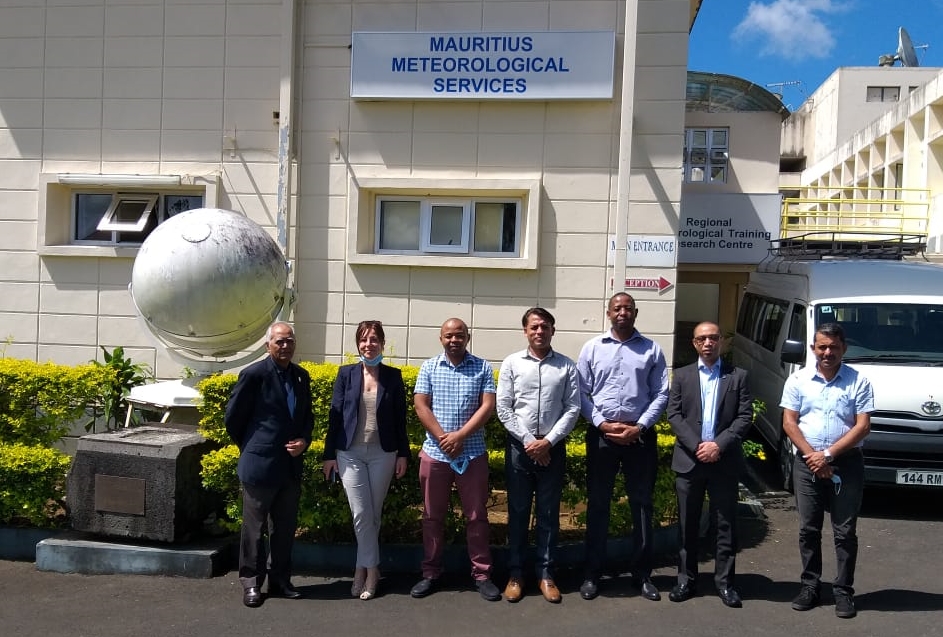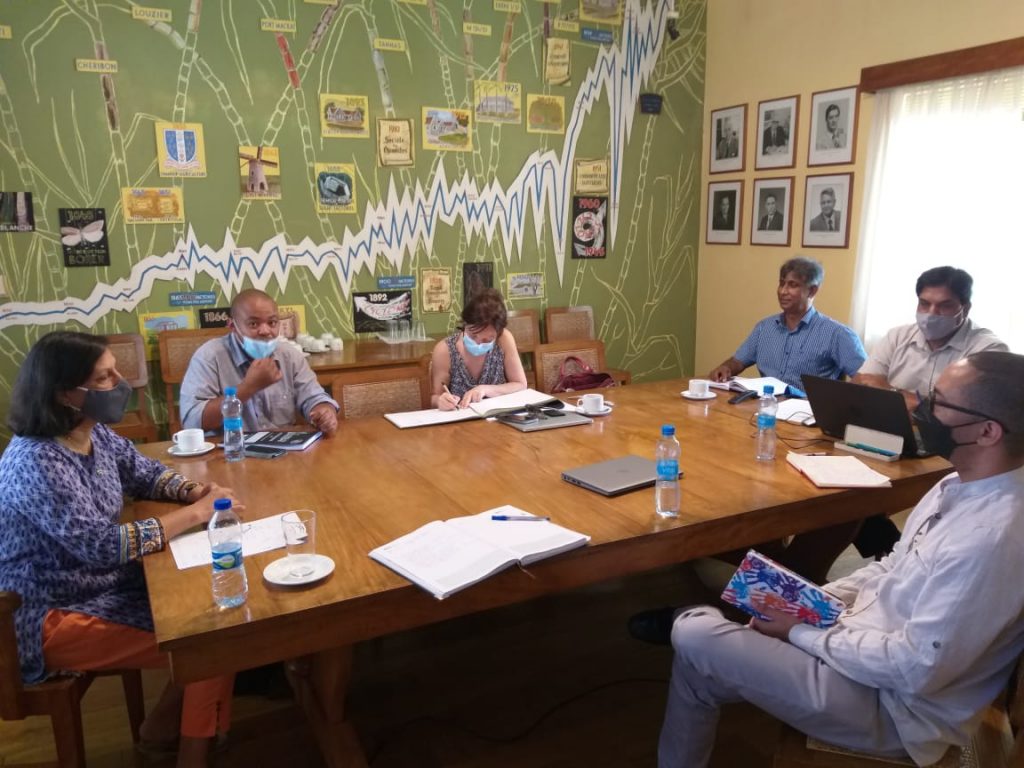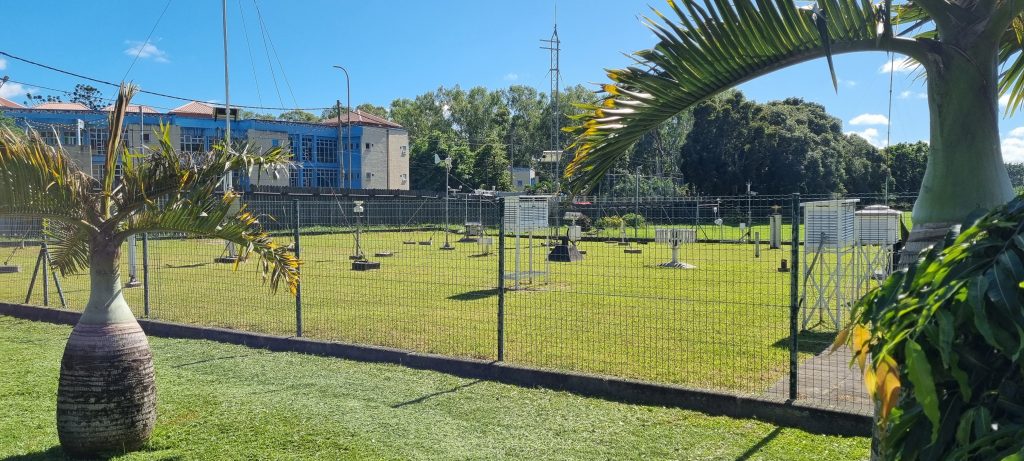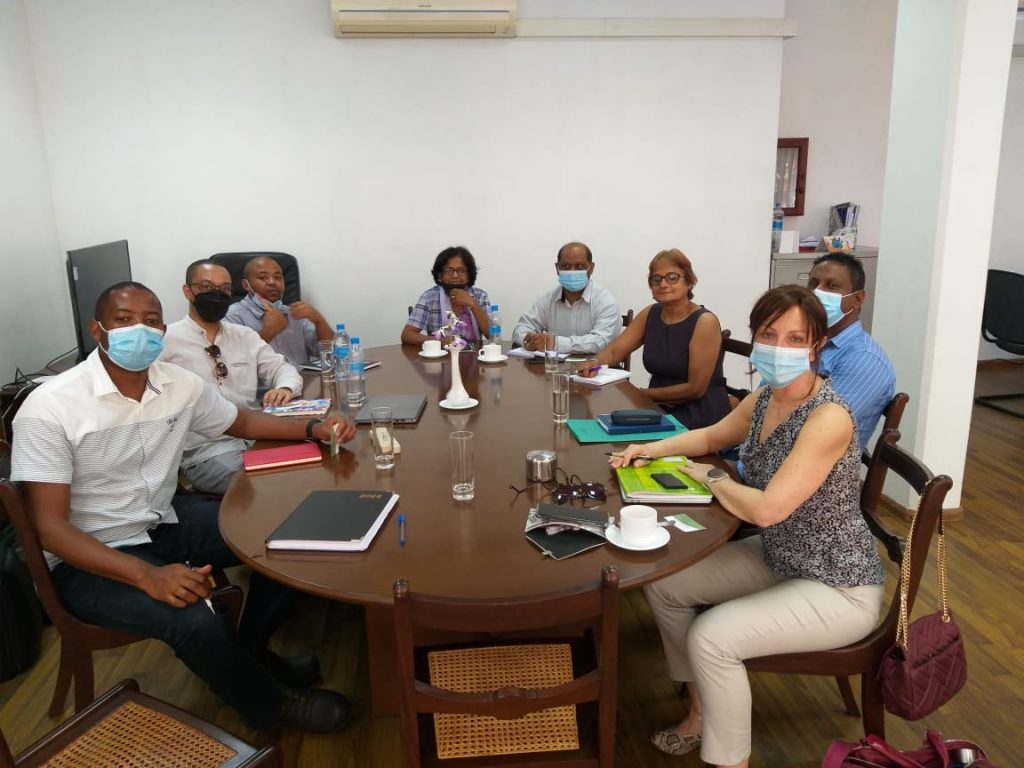Interacting with users and stakeholders to understand their climate services needs.

The FOCUS-Africa Case Study 8 team, comprising of staff from the World Meteorological Organization (WMO) and the Council for Scientific and Industrial Research (CSIR), undertook a mission to Mauritius to interact with users and stakeholders to better understand their climate services usage and needs. The mission was undertaken in the context of Case Study 8 on climate services for water resources in Mauritius and was intended to advance stakeholder engagement, socio-economic and scientific aspects of the case study. The mission was facilitated by the Mauritius Meteorological Services (MMS) which is the national provider of climate services in the country. During the four-day mission, the team had the opportunity to meet and interact with five institutions in the water resources and agriculture sectors of the country to discuss their use and needs for climate services.
Interesting results emerged showing that some of the stakeholders use historical climate data for planning of infrastructure such as irrigation facilities and in some cases for long term variety selection or for yield projection on a season-to-season basis. Post event analysis by MMS is also used to inform insurance payouts and compensation to farmers related to losses from climate hazards, though these are not based on climate information alone. However, the use of forecasts could be enhanced and could contribute to the countries goals to make irrigation more efficient and productive; while climate projections could be used to make infrastructure and crop farming more resilient to climate change, priorities that are already mentioned in the Mauritius INDC (2015).
On the 3rd day of the mission a workshop was held, inviting all the stakeholders met to present the broader picture of their activities in relation to climate resilience and jointly brainstorm on key issues, such as common climate services needs. The participants strongly highlighted the need to not only develop tailored climate services but to also work with the different institutions and stakeholders to rollout and solicit feedback on them.
The sustainability of the climate services to be developed under the project emerged as a key issue, with the project partners emphasizing that capacity building on any tools, methods and products for both the scientists at MMS as well as the users of the services would be an integral part of the projects actions. Although MMS was already running some forecasting models the CSIR team assisted to make some configurational changes to allow for seasonal forecasts that would feed into the tailored climate services to be developed.
As a result of the mission the following outcomes were realized: raised awareness among stakeholders on the project and more broadly on the services provided by MMS; improved understanding of the climate services needs of various institutions and sectors; increased the teams understanding of the socio-economic context of the water resources and agriculture sectors; and helped to advance the technical and scientific aspects of case study 8, including installations and configuration of forecasting software. On the last day of the mission, CSIR and MMS prepared a clear roadmap on how the new climate services will be developed and tested. This road map will include conducting sensitivity tests, model evaluation, hindcasting and eventually operational use in the production of selected tailored products.
The COVID pandemic has severely reduced face-to-face interactions among project partners and more so between national meteorological services and their stakeholders. The interactions with stakeholders during the mission showed a definite need for more of such in order to ensure codesigned climate services that are useful for different institutions and sectors.
In May 2022, a third mission is planned to Tanzania to meet with stakeholders, including farmers and extension agents, to better understand their climate services usage, needs and challenges and ensure their input into the codesign of the tailored climate services in the case studies there.
Written by Sebastian Grey (Project Officer, WMO)
and Roberta Boscolo (Scientific Officer and FOCUS-Africa Project Coordinator, WMO)




